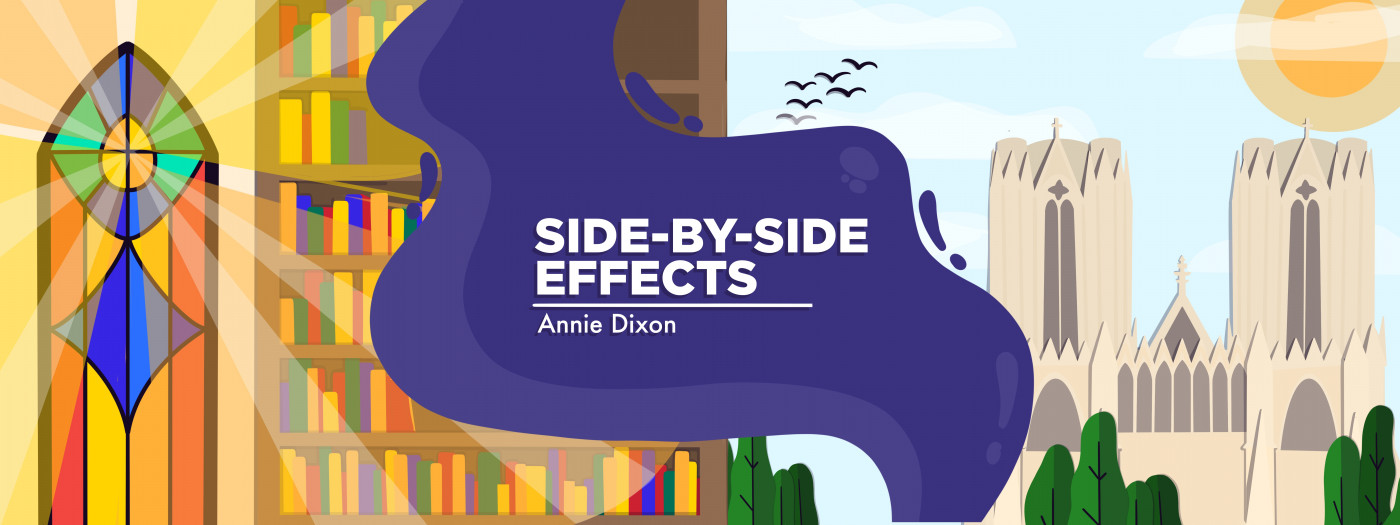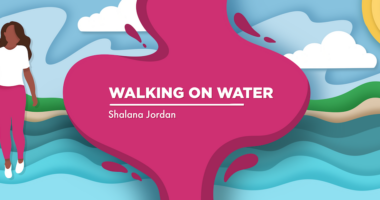One More Thing … or a Few

When I took this column on a year ago, I wasn’t sure I would have enough to write about each week. Once one learns to say “atypical hemolytic uremic syndrome,” how much is there to say about living with it? So before I committed to the gig, I did a bit of brainstorming. Soon I had scrawled dozens of topics over three pages and realized I could chat, gripe, advocate, explain, explore, and ponder for months to come.
As I got into the role of columnist and caregiver, life kept throwing new complications at my husband, Ronald, and me. What I previously might have viewed as an annoying challenge could now be transformed into subject matter. In fact, as I look at the blank page of my final column, I realize I have leftover topics. Turns out, I had plenty to say; I was just looking for someone to listen. So herewith: the Reader’s Digest condensed version of the topics I never got around to writing about.
Taking care
I put pictures up in the hospital room so the doctors and nurses would see the patient as I did: healthy, happy, creative. Photos of him smiling and standing presented the image I wanted them to have as their goal. Pictures he had drawn gave them a glimpse of the work he wanted to return to — and something to talk about besides illness all the time.
I don’t think my husband’s hematologist likes me. I don’t care. He takes good care of my husband, and he puts up with all my questions. Caregiving is not a vocation for people pleasers. My patient’s health is more important than my popularity.
A short attention span seems to be a significant side effect of living with chronic illness. I have watched only a handful of movies in the six years since I took on the role of caregiver, and I couldn’t tell you what they were. I still have difficulty with focus and memory. The doctor prescribed a couple of anti-anxiety pills for me. I never took them; I decided feeling crazy is a sane reaction to my husband’s crazy diagnosis. Learning to prioritize was a better solution for me than medication.
Keeping faith
Patients and their families often ponder why bad things happen to good people. I prefer to contemplate why so many good people have used their God-given talents to research and treat these bad, obscure diseases for us.
Although there are plenty of saints invoked for specific maladies, there is no patron saint of rare diseases. I nominate Padre Pio, who suffered with the stigmata for years. He was a 20th-century mystic with numerous miracles to his credit, including bilocation and other marvels. And his direct and faithful advice got me through the early mysteries of aHUS: “Pray, hope, and don’t worry,” was his simple admonition. Meanwhile, I pray that all diseases become rare.
The big takeaway
So what have I learned since my husband’s diagnosis and writing about it? My skill set now includes how to flush a PICC line and the discipline to meet publication deadlines. But the biggest lesson for me has been the realization that people with nothing left to lose and those with everything to lose are in kind of the same place.
A life-changing diagnosis can be life-affirming. Disease is just that: dis-ease, not at ease, outside your comfort zone. It can be a physical nudge to push yourself beyond other perceived limitations, be they emotional, intellectual, creative. What is the worst that could happen? Rejection? Failure? Compared with medical rejection or bodily failures, what does it matter if husband and wife have to do a bit of role reversal, if the doctor doesn’t like me, or if the editor changes the title?
Since his diagnosis, my husband has learned to slow down and to trust me as his caregiver, and I have learned to speak up on his behalf. In the past year, I became a published weekly columnist and acquiesced to editorial decisions. None of this would have happened if our life and work had not been upended by this disease, which tossed us out of our comfort zone.
And now my husband is snoozing comfortably on the sofa as I write my final column. Maybe it’s aHUS fatigue or maybe it’s the wine. Whatever. We are still side by side and, for a moment, I still have a small readership paying attention. Thanks for listening.
Note: aHUS News is strictly a news and information website about the disease. It does not provide medical advice, diagnosis, or treatment. This content is not intended to be a substitute for professional medical advice, diagnosis, or treatment. Always seek the advice of your physician or other qualified health provider with any questions you may have regarding a medical condition. Never disregard professional medical advice or delay in seeking it because of something you have read on this website. The opinions expressed in this column are not those of aHUS News or its parent company, Bionews, and are intended to spark discussion about issues pertaining to aHUS.







Leave a comment
Fill in the required fields to post. Your email address will not be published.